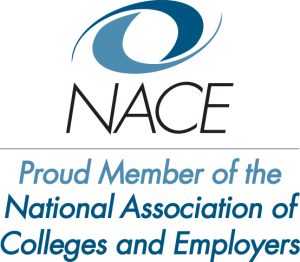What Works in a Job Search? Part 4: Evaluate Job Offers In Light Of Your Calling
In this 4-part series, I’ve explored evidence provided in a classic meta-analysis by Liu, Huang, and Wang on effective job search interventions, and offered advice on how to navigate a job search effectively. As you use the job search skills you learn and persist in implementing them even in the face of frustration, you will eventually receive job offers. It’s true!
Given your sense of calling, how should you evaluate those offers as they come in? Granted, it is a luxury to have a choice in the matter, a luxury you may not possess right now. Your circumstances may be such that you simply must accept whatever offer you can secure.
Maybe you have only one job offer to evaluate, and it is hard to see that others will follow quickly. Maybe you are reading this in a geographic region or at a time in which jobs in your field are hard to come by. Even so, whether you have one or several, the key question for any offer is: “What can I expect from this job in terms of how it fits with my calling?” I address this question in this final installment in the series.
See @Pathway_U’s fourth and final installment in the What Works In A Job Search series live now and learn what it means to evaluate job offers with your calling in mind: Click to TweetDoes the position align with your gifts?
Think carefully about your interests, values, personality, and abilities. Read the job description carefully, and imagine yourself in that role, day in and day out. If you are still unsure how that will look, ask if you can speak to some prospective co-workers to get a clearer sense of their experience.
Investigate with questions like:
- Will the essential requirements of the job capture what you most enjoy?
- Will it satisfy your strongest work values?
- Will it allow you to “be who you are,” like a swimmer gliding with the current instead of laboring against it?
- Do the abilities are required in the job overlap well with your strengths?
A key way to discern your calling is to identify your gifts and explore opportunities that fit them. If this job allows you to express your gifts, chances are good it falls within the range of opportunities that align with your calling.
Can you thrive in the organization’s culture?
This question moves from evaluating the job's essential duties to examining the organization's culture as a whole. The question is one of workplace culture preferences: Does this employer embrace the organizational values most important to you? Organizations vary widely in the types of cultures that they promote.
For example, some emphasize innovation and give employees every opportunity to tinker and transform; others take an “if it ain’t broke, don’t fix it” approach and stress the importance of consistency and quality. Some are mission-driven, socially responsible, and self-reflective; others are laser-focused on their goals for performance.
As was the case for interests, values, and personality, PathwayU measures your workplace preferences to help you understand what will be most important for you to experience in an organization.
Attempts to measure differences in workplace preferences — both in the cultural values that people prefer and in the cultural values that organizations promote — date to a series of studies at Berkeley during the early 1990s. There, researchers generated a set of 54 value statements that could be used to describe any person or organization, but that couldn’t be used to describe all people or organizations — terms like “rule-oriented,” “precise,” and “socially responsible.”
They put those statements on a set of cards and asked a group of people to sort those cards into piles based on how descriptive each statement was of their current organization and also their ideal organization. That process was repeated and refined several times, and each time, a series of sophisticated statistical analyses were applied to the ratings.
Find out how to navigate job offers while knowing what your gifts and talents are in the latest installment of @Pathway_U’s What Works In A Job Search series:Click to TweetMore than a decade ago, scholars from Australia reduced the items further, and researchers at jobZology continued this process until arriving at seven broad dimensions of workplace culture. They are as follows:
- Excellence. People who value Excellence like working for organizations that emphasize achievement, quality, being distinctive from others, and being competitive.
- Guiding Principles. People who value Guiding Principles like working for organizations that value social responsibility, have a clear guiding philosophy, are reflective in their approach to doing business, and have a good reputation.
- Collaboration. People who value Collaboration like working for organizations that are team/people oriented, share information freely, and emphasize collaboration.
- Innovation. People who value Innovation like working for organizations that are quick to take advantage of opportunities, emphasize innovation, are comfortable taking risks, and encourage employees to take individual responsibility.
- Recognition. People who value Recognition like working for organizations that place a strong emphasis on fairness, provide praise and high pay for good performance and offer opportunities for professional growth.
- Performance. People who value Performance like working for organizations that have high expectations for performance, are results-oriented, highly organized, and have high levels of enthusiasm for the job.
- Stability. People who value Stability like working for highly stable organizations, where the level of conflict is low, where job security is high, and where people are calm.
Which of these workplace culture values would your ideal organization emphasize? PathwayU uses a forced-choice format to measure workplace preferences, requiring you to prioritize which organizational values are most important for you. When you do so, which ones rise to the top? Understanding your preferences will help you evaluate a prospective employer based on the fit of their values with yours.
To get a feel for an organization’s culture, you can examine its website and talk with people who are familiar with the organization. Those are great starting points, but make sure you also talk with current employees, especially those you would potentially work alongside.
Can you live your calling within the job?
In the ideal world, you will receive an offer for a job that aligns well with your gifts at an organization with a culture that supports what is most important to you — a position tailor-made for you that will align perfectly with your calling.
But for better or worse, we all live in the real world, not the ideal one. In the real world, some level of compromise is, as far as I can tell, universal; each of us can expect to work in a role in which the fit is less than perfect. When evaluating job offers, imagine a continuum along which you can place jobs based on how well each fits your calling, from perfect alignment to no alignment at all.
For any job, ask yourself: Where along that continuum does this job fall? That is, how well will this job allow me to use my gifts in ways that enhance the common good? Let your answer to this question drive your decisions.
This blog post series is excerpted from Bryan’s latest book, Redeeming Work. Dik, B. J. (2020). Redeeming Work. West Conshohocken PA: Templeton Press.
To read the previous three entries of this series, check them out here:
- What Works in a Job Search? Part 1: Effective Job Search Strategies
- What Works in a Job Search? Part 2: Improve Your Self-Presentation
- What Works in a Job Search? Part 3: Keep the Pedal Down
See more about how PathwayU can help you lead students to a successful career through support and valuable resources, schedule a demo today.
-1.png?width=288&height=67&name=PathwayU_PGLogo%20(1)-1.png)











